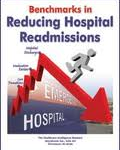4 Concerns with the ACA for 2014
January 1, 2014 is rapidly approaching and this date is the effective date for many major provisions of the ACA. What is the status of these issues? Where do we stand as a country?
Home » Health Care Reform » Page 7
January 1, 2014 is rapidly approaching and this date is the effective date for many major provisions of the ACA. What is the status of these issues? Where do we stand as a country?
Who are the winners and losers of the employer mandate? What was the reason for the delay? Who isn’t affected positively or negatively?
The decision has been made to postpone the penalties assessed to large and medium sized companies who don’t offer insurance to their employees. The mandate which was to be effective in 2014 has been postponed to 2015.
The Centers for Medicare & Medicaid Services (CMS) has established a Medicare Shared Savings Program to facilitate coordination and cooperation among providers to improve the quality of care for Medicare Fee-For-Service beneficiaries and reduce unnecessary costs.

Do you have 9 minutes? This video will hit the highlights and basically explain Healthcare Reform in a nutshell.
Just imagine the possibilities we have in the healthcare field. We are already completing surgeries via robots. Research is being done to cure major diseases such as Cancer. Physicians can monitor patients from home. Telemedicine is taking off. Electronic medical records are basically common place now. Health information is available at your finger tips through the internet. The Affordable Care Act is focusing on transparency so we, as Americans, can know what we are paying for. There is a renewed emphasis on patient safety and quality of care. Efforts are being made to reduce healthcare costs. Medicaid recipients are growing at a rapid rate. The healthcare industry is one of the fastest growing industries today. What changes do you see? What changes do you recommend? How do you see healthcare 5 years from now? 10 years from now?
What promises were made during the Presidential campaigns? Which promises are falling by the waste side?
A new and improved simplified version of the application for health insurance benefits under Obamacare aka Healthcare Reform is due to be released. Obamacare simplification – is that an oxymoron like jumbo shrimp?


When we think of first aid we may think of appropriate responses to physical injuries, like appropriate wound care, head trauma stabilization, or CPR. Most